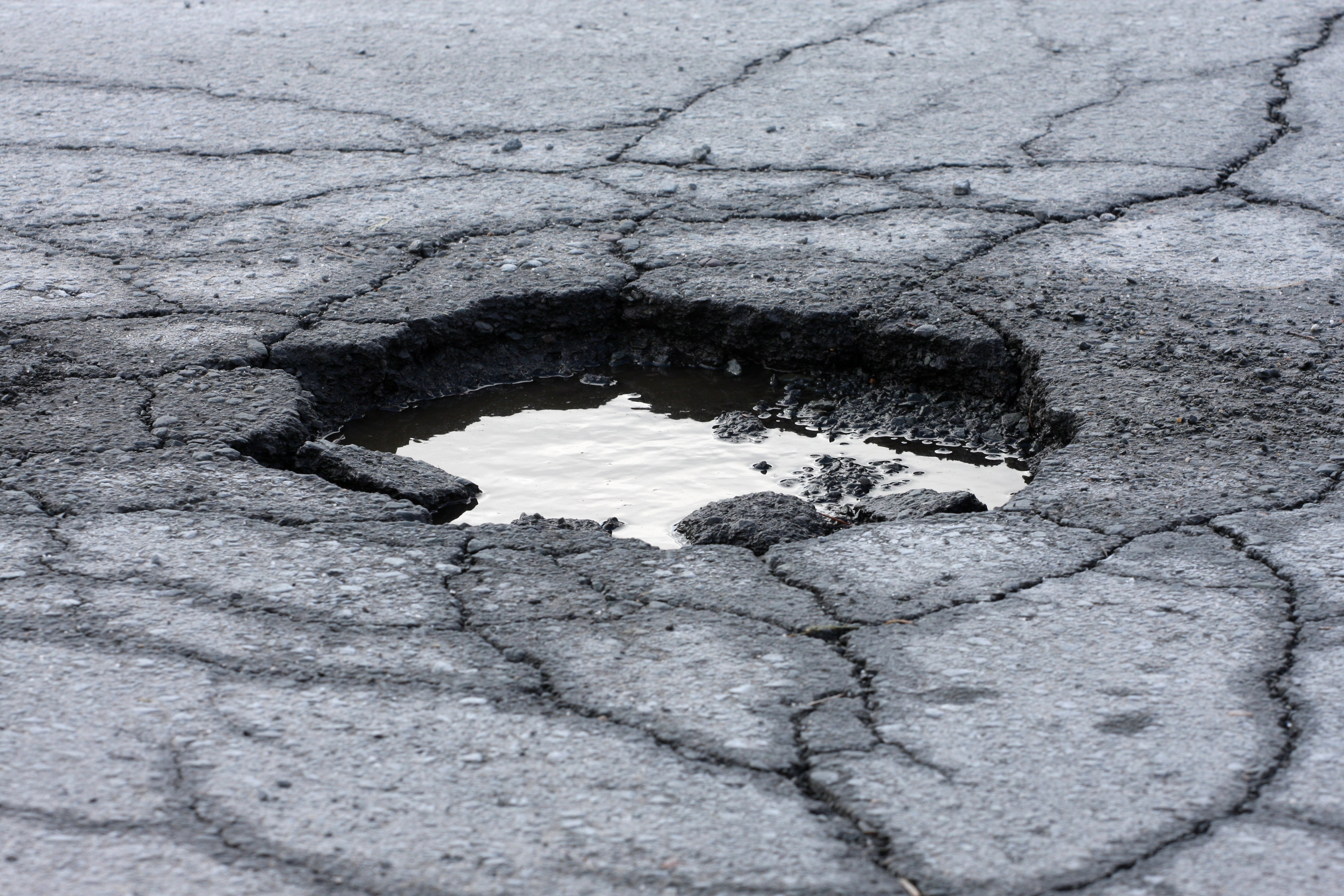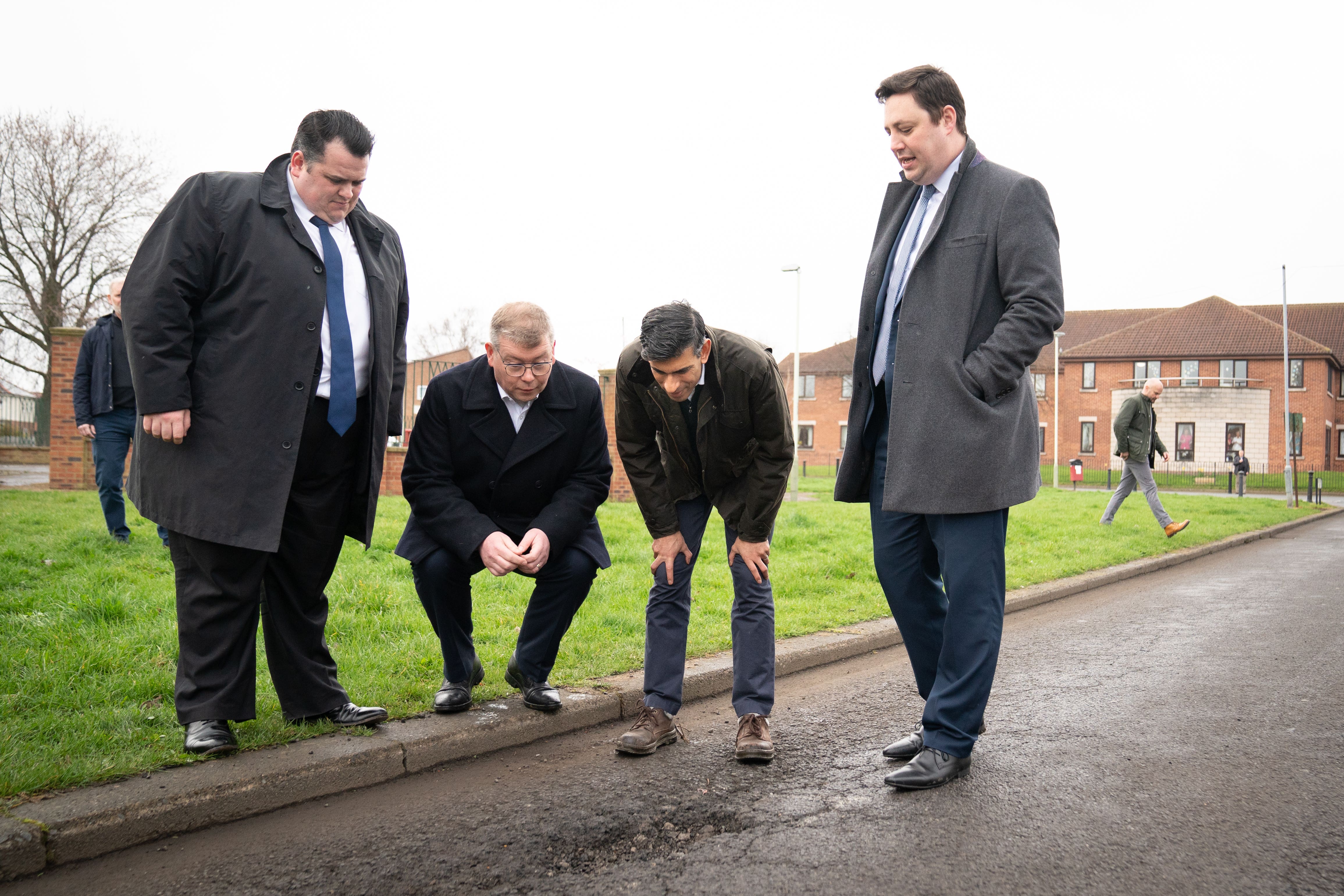Who should pay if you hit one of the country’s two million potholes
What you need to know about claiming insurance on damage caused by potholes

Your support helps us to tell the story
This election is still a dead heat, according to most polls. In a fight with such wafer-thin margins, we need reporters on the ground talking to the people Trump and Harris are courting. Your support allows us to keep sending journalists to the story.
The Independent is trusted by 27 million Americans from across the entire political spectrum every month. Unlike many other quality news outlets, we choose not to lock you out of our reporting and analysis with paywalls. But quality journalism must still be paid for.
Help us keep bring these critical stories to light. Your support makes all the difference.
Britain’s roads these days are a never-ending scene of broken-up tarmac, buckled alloy wheels, snapped suspension, punctured tyres and close calls.
The country’s highways are heading towards “breaking point”, according to the Asphalt Industry Alliance (AIA), which carried out latest research.
The annual Alarm survey found that local authorities expect to fix 2 million potholes in the current financial year.
That is up 43% compared with 1.4 million during the previous 12 months, and is the highest annual total since 2015/16 when 2.2 million potholes were filled in.
The AIA report said: “This indicates that local authorities, who have a statutory responsibility to keep local roads safe, don’t have the funds to do so in a cost-effective, proactive way, which would allow them to carry out the appropriate maintenance interventions at the right time.”

These are just a few scenarios of what can happen to your car if you hit one of these small sinkholes that are forming all over our road network.
So what do you do if your car has been damaged by a pothole?
Evidence
If your car is damaged by a pothole, make sure that you collect as much evidence as possible. It may sound over the top, but having enough evidence from the pothole could be in your favour when it comes to claiming the damage it has done to your car.
Make sure you take a lot of photos of the pothole, get every angle and try to get close-ups and even shots standing back to mask how big the size of the hole is. Remember, always stay safe when collecting evidence and don’t put yourself in harm’s way in order to get a snap of a pothole.
Take note of its location and what time of day you hit it, as the darker the conditions, the more susceptible they are to catching people out.
Assessing the damage
The most common areas of damage a pothole can cause to your car are the suspension and tyres.
Tyres can become deflated or they can burst from the impact. Alloy wheels can become buckled– which can be a very expensive mistake. The suspension takes so much force that springs and other components can snap, too.
Take your car to a repair centre or garage and get a professional to look over the damage with you. Then, get them to give you a written report and assessment of the damage with an estimation of how much the damage is going to cost to put right.
Report the pothole
Another way to try and alert others of certain car-killing potholes is to report it. You can visit your local authority’s website to fill out a compensation form. It will ask you for photos of the pothole and your car’s damage and the mechanic’s report and details.
This can also alert local governments regarding certain potholes that are susceptible to causing damage to vehicles.
Claim through insurance
If you have comprehensive insurance, you can claim the damage that has been caused by the pothole. However, there are a couple of things to note if you go through your insurance. Firstly, make sure that it doesn’t affect your no-claims bonus – if it does, it will affect your premium the next time your car insurance needs to be renewed.
Check when going through your insurance that they don’t write the vehicle off unnecessarily. Car insurance companies can sometimes find the damage costs outweigh the overall value of your car, which will be an inconvenience to you and your wallet– a written-off car is worth far less than one that isn’t.
Who’s responsible?
That might sound tricky, but try and find out who is responsible for the pothole. It is normally local authorities/councils that are responsible for road work repairs. One way is to ask your local council for copies of highway maintenance schedules and reports of incidents.
Another point to make is to try and do this within 14 days of your pothole occurrence itself, as any longer than this period may not show up in a report.
Council offer or reject
If you complain to your council about the pothole and they take it up by repairing the road alongside an offer to cover the cost of repairs for your vehicle then that’s great. However, if the council’s offer isn’t fair and doesn’t cover the cost of the damage to your vehicle, then it’s worth standing firm.
By fighting your point that not only did you not receive enough compensation, but if the pothole had been reported and no action was taken it may stand you in greater chance of winning your case.
If the council rejects your claim, or you feel that they have not taken matters into their own hands then you can seek legal advice to try and take them to court. However, this is time-consuming and can be costly – which could wipe out any money you’re trying to seek back in the cost of repairs for your vehicle.
Join our commenting forum
Join thought-provoking conversations, follow other Independent readers and see their replies
Comments